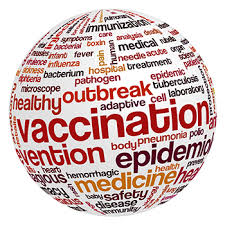By Daniel Stone
Throughout history, humanity has faced a constant struggle against disease. From ancient plagues to modern pandemics, infectious diseases have tested our strength and changed the course of civilization.
These major health events
remind us of our vulnerability and have significantly impacted our societies.
They have driven medical advancements, shaped public health policies, and
deeply influenced our understanding of what it means to be human.
The
Black Death: A Grim Reaper Sweeping Across Europe
In the 14th century, one of the
most devastating pandemics struck: the Black Death, a deadly form of the
bubonic plague. This disease likely started in Central or East Asia, possibly
near the Gobi Desert, and spread quickly along trade routes to Europe through
infected ships. The results were catastrophic.
The Black Death had horrifying
symptoms, fever, chills, swollen lymph nodes, and internal bleeding, and it
swept through Europe like a scythe, claiming an estimated 75 to 200 million
lives, almost one-third of the continent's population. Entire villages
vanished, leaving behind a trail of grief and despair.
The social and economic
consequences were profound. Labor shortages crippled economies, causing social
upheaval and shifts in power dynamics. Fear and chaos fueled widespread
persecution, especially against marginalized groups like Jews, who were
unfairly blamed for the outbreak.
Yet from this darkness emerged
a glimmer of hope. The Black Death prompted significant advancements in public
health as societies struggled to understand and fight this invisible enemy.
Quarantine measures were implemented to contain the spread of the disease, even
if they were often crude and harsh.
The
Spanish Flu: A Global Tragedy in the Wake of War
A century later, the world
faced another global health crisis: the 1918 Influenza Pandemic, commonly known
as the "Spanish Flu." This devastating pandemic affected young,
healthy adults more than any other group, leaving families and communities in
shock.
The Spanish Flu likely
originated from birds and spread rapidly around the world due to troop
movements during World War I. Overcrowded military camps, poor nutrition, and
weakened immune systems among soldiers created perfect conditions for the virus
to thrive. An estimated 50 to 100 million people lost their lives to this
virus—a staggering toll that highlighted how fragile human life can be when
faced with a global health threat.
This pandemic served as a
powerful reminder of how interconnected our world is and how crucial public
health measures are. Quarantine and isolation strategies were put in place to
control the virus's spread, even though many resisted these measures. The
Spanish Flu also emphasized the need for countries to work together in
addressing global health challenges.
HIV/AIDS:
A Silent Epidemic
The 20th century also saw
another devastating pandemic: HIV/AIDS. First identified in the early 1980s,
HIV/AIDS quickly spread worldwide, claiming millions of lives, especially in
sub-Saharan Africa.
In its early years, the
epidemic was filled with fear and stigma due to a lack of understanding about
the disease. Those infected faced discrimination and social isolation. However,
activists, researchers, and healthcare workers worked tirelessly to change this
narrative.
Thanks to advancements in
medical research, antiretroviral therapies were developed that significantly
improved the quality of life for people living with HIV. This progress
transformed HIV from a fatal illness into a manageable chronic condition. It
showed us the importance of scientific research, advocacy, and international
cooperation in overcoming health crises.
Ebola:
A Deadly Threat From the Jungle
The Ebola virus is another
example of a serious health threat that has emerged in recent years. Though
rare, Ebola is highly contagious and has caused significant outbreaks, most
notably in West Africa from 2014 to 2016.These outbreaks highlighted how
challenging it can be to control infectious diseases in areas with limited
resources. With its high mortality rate and rapid transmission rate, Ebola
tested global health systems' limits. It underscored the need for quick
response teams, international collaboration, and strong public health
infrastructure.
COVID-19:
A Global Test of Resilience
The COVID-19 pandemic began in
late 2019 when a new virus called SARS-CoV-2 emerged. This virus quickly spread
around the world, leading to millions of deaths and widespread disruptions in
economies, healthcare systems, and daily life.COVID-19 forced us all to
confront how interconnected we are as a global society. Lockdowns, social
distancing measures, and unprecedented travel restrictions were put into place
to slow down the virus's spread. This situation highlighted the difficult
balance between protecting public health and maintaining individual freedoms.
The pandemic also accelerated
vaccine development at an incredible pace. The rapid creation and distribution
of COVID-19 vaccines demonstrated how powerful scientific collaboration can be
when facing a global health crisis.
A
Legacy of Learning and Resilience
These major health events remind us just how vulnerable we are to diseases but also show us how far we've come in terms of medical science and public health policy. They teach us important lessons about:
1. Investing in Strong Public Health Systems: Having robust healthcare systems with well-trained workers and good access to quality care is essential for detecting outbreaks early and responding quickly.
2. Promoting Global Cooperation: To tackle global health threats effectively, countries must collaborate by sharing information and ensuring everyone has access to necessary resources.
3. Investing in Research: Continued investment in medical research is crucial for developing new vaccines and treatments for emerging infectious diseases.
4. Addressing Social Determinants of Health: Factors like poverty, inequality, clean water access, and sanitation greatly affect health outcomes; addressing these issues is vital for improving public health overall.
The legacy of these major
health events serves as a powerful reminder that fighting disease is an ongoing
challenge that requires constant vigilance. By learning from past experiences, investing
in preparedness efforts, and fostering global solidarity, we can better protect
ourselves today and for future generations against emerging infectious
diseases.
The history of humanity's
struggle against disease is filled with lessons about resilience and
adaptation. Each pandemic has shaped our societies in profound ways while
reminding us of our shared vulnerability as humans.


Post a Comment